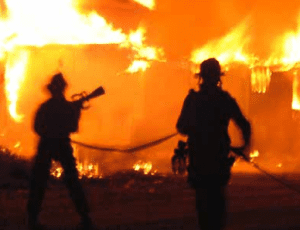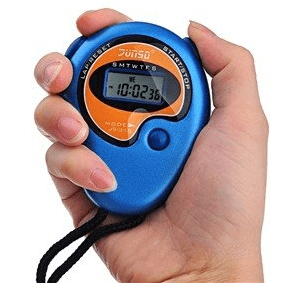 Welcome to part 8 on the series dedicated to stress. In the previous segment I talked about the vulnerability of your brain to become overloaded under stress which can impact your situational awareness. In this article I’m going to talk about how your perception of time can become distorted as a result of stress.
Welcome to part 8 on the series dedicated to stress. In the previous segment I talked about the vulnerability of your brain to become overloaded under stress which can impact your situational awareness. In this article I’m going to talk about how your perception of time can become distorted as a result of stress.
Tachypsychia
Tachypsychia is a neurological condition that results in the distortion of time. While there can be several causes, we’re going to focus on emergency scene stress as the trigger. The phenomenon has been well documented in interviews with police officers, military personnel and martial arts experts. It’ is sometimes called Tachy Psyche effect.
Individuals impacted by tachypsychia have described it as having the appearance that time is elongated, giving the appearance that events are moving slower than reality. The opposite has also been described, where it appears time is speeding up, sometimes moving so fast that things appeared blurred.
In Part 1 of this series I talked about the massive dump of hormones triggered by stress. Research suggests that tachypsychia is a stress reaction induced by a combination of high levels of dopamine and norepinephrine. The chemicals impact the uptake and processing of information in the visual processing center.
Time gets away from you
 Another thing that can happen when you are operating at an emergency scene is time can get away from you. This may not be so much related to stress and hormones as it is to the way excitement can divert or focus your attention and cause you to lose track of time.
Another thing that can happen when you are operating at an emergency scene is time can get away from you. This may not be so much related to stress and hormones as it is to the way excitement can divert or focus your attention and cause you to lose track of time.
Perhaps you’ve experienced this while doing something enjoyable with friends or family. You look at your watch and it’s 10:00 am. The next time you glance at the time it’s 2:30 pm. And you wonder: Where did the time go? It sure doesn’t seem like 4 1/2 hours passed.
At the emergency scene, this can be especially challenging for situational awareness because as thirty minutes pass by it may only seems as though ten have. It is very easy in the fast-paced, information rich environment of an emergency for you to lose track of time. In an environment where firefighters may be operating inside a building that is decomposing as a result of heat exposure, an awareness of the passage of time is catastrophically important.
The agony of crawling time
 If you’ve been a first responder for any length of time, you have surely responded to an emergency scene to be met by someone screaming WHAT TOOK YOU SO LONG! I CALLED 9-1-1 TWENTY MINUTES AGO! Once the incident is complete and the records are reviewed, it is revealed the elapsed time from the 9-1-1 call to your arrival was actually only eight minutes. But it seemed like twenty minutes to the complainant. That’s because they are under stress and they are watching a crisis play out before their eyes. They are helpless to change the outcome and that adds more stress. In this situation, time distortion makes eight minutes seem to pass like twenty.
If you’ve been a first responder for any length of time, you have surely responded to an emergency scene to be met by someone screaming WHAT TOOK YOU SO LONG! I CALLED 9-1-1 TWENTY MINUTES AGO! Once the incident is complete and the records are reviewed, it is revealed the elapsed time from the 9-1-1 call to your arrival was actually only eight minutes. But it seemed like twenty minutes to the complainant. That’s because they are under stress and they are watching a crisis play out before their eyes. They are helpless to change the outcome and that adds more stress. In this situation, time distortion makes eight minutes seem to pass like twenty.
If you are a commander or company officer operating at a scene and give an assignment to a company (e.g., stretch a hose line in preparation for interior attack on a fast moving fire). It may seem like the crews are operating in slow motion. If things aren’t getting done at the speed expected, this can lead to anger, frustration and task fixation. All three of these outcomes are barriers to situational awareness. These three barriers are on the list discussed during the Fifty Ways to Kill a First responder program.
Dr. Gasaway’s Advice
 There is little you can do about tachypsychia because it is chemically induced. All you can do is control your reaction to stress in an effort to prevent the dump of chemicals. This was discussed previously so I won’t be redundant here.
There is little you can do about tachypsychia because it is chemically induced. All you can do is control your reaction to stress in an effort to prevent the dump of chemicals. This was discussed previously so I won’t be redundant here.
You can keep track of the passage of time using two very simple methods. First, have your dispatch announce the passage of time over the radio (e.g., 10 minutes, 20 minutes, 30 minutes). Ideally this would be done on a channel (or multiple channels if necessary) so everyone operating at the emergency scene can hear it. This is important because everyone operating at the emergency scene can be impacted from losing track of passing time.
 Some agencies may have a dispatch center that is not able or is unwilling to support scene operations by keeping track of time passage and making the announcements. If you find yourself in this situation, the commander or a designee could keep track of time using a timer on a command board or a stop watch. Then announce the passage in time intervals (e.g., 10 minutes, 20 minutes, 30 minutes).
Some agencies may have a dispatch center that is not able or is unwilling to support scene operations by keeping track of time passage and making the announcements. If you find yourself in this situation, the commander or a designee could keep track of time using a timer on a command board or a stop watch. Then announce the passage in time intervals (e.g., 10 minutes, 20 minutes, 30 minutes).
 Action Items
Action Items
1. Describe a time when you were working at an emergency scene and time got away from you. What was the consequence?
2. What tips do you have for helping others manage the passage of time at an emergency scene?
3. Have you ever experienced tachypsychia? Describe what happened and how it impacted you.
About the Author
Richard B. Gasaway, PhD, CSP is widely considered a trusted authority on human factors, situational awareness and the high-risk decision making processes used in high-stress, high consequence work environments. He served 33 years on the front lines as a firefighter, EMT-Paramedic, company officer, training officer, fire chief and emergency incident commander. His doctoral research included the study of cognitive neuroscience to understand how human factors flaw situational awareness and impact high-risk decision making.
_____________________________________________________

If you are interested in taking your understanding of situational awareness and high-risk decision making to a higher level, check out the Situational Awareness Matters Online Academy.
CLICK HERE for details, enrollment options and pricing.
__________________________________
Share your comments on this article in the “Leave a Reply” box below. If you want to send me incident pictures, videos or have an idea you’d like me to research and write about, contact me. I really enjoy getting feedback and supportive messages from fellow first responders. It gives me the energy to work harder for you.
Let’s Get connected
Facebook: SAMatters
LinkedIn: Rich Gasaway
LinkedIn: Situational Awareness Matters
Twitter: Rich Gasaway
Youtube: SAMattersTV
itunes: SAMatters Radio
Stitcher Radio: SAMatters Radio
Google Play: SAMatters Radio
iHeart Radio: SAMatters Radio

Pingback: Stress: The Nemesis of Situational Awareness | Situational Awareness Matters!™
Pingback: Situational Awareness Survey - Situational Awareness Matters!™Situational Awareness Matters!™
Pingback: Survivor of Grizzly Bear Attack in Dupuyer, Montana Used .44 Magnum
Pingback: Survivor of Grizzly Bear Attack in Dupuyer, Montana Used .44 Magnum – slickgunsnews.com
Pingback: Survivor of Grizzly Bear Attack in Dupuyer, Montana Used .44 Magnum | The Gun Point
Pingback: Survivor of Grizzly Bear Attack in Dupuyer, Montana Used .44 Magnum – Minnesota Gun Rights
Pingback: Survivor of Grizzly Bear Attack in Dupuyer, Montana Used .44 Magnum – Sprent Brass